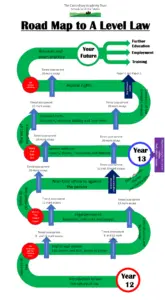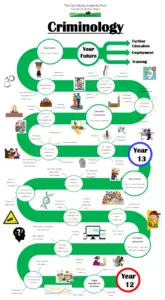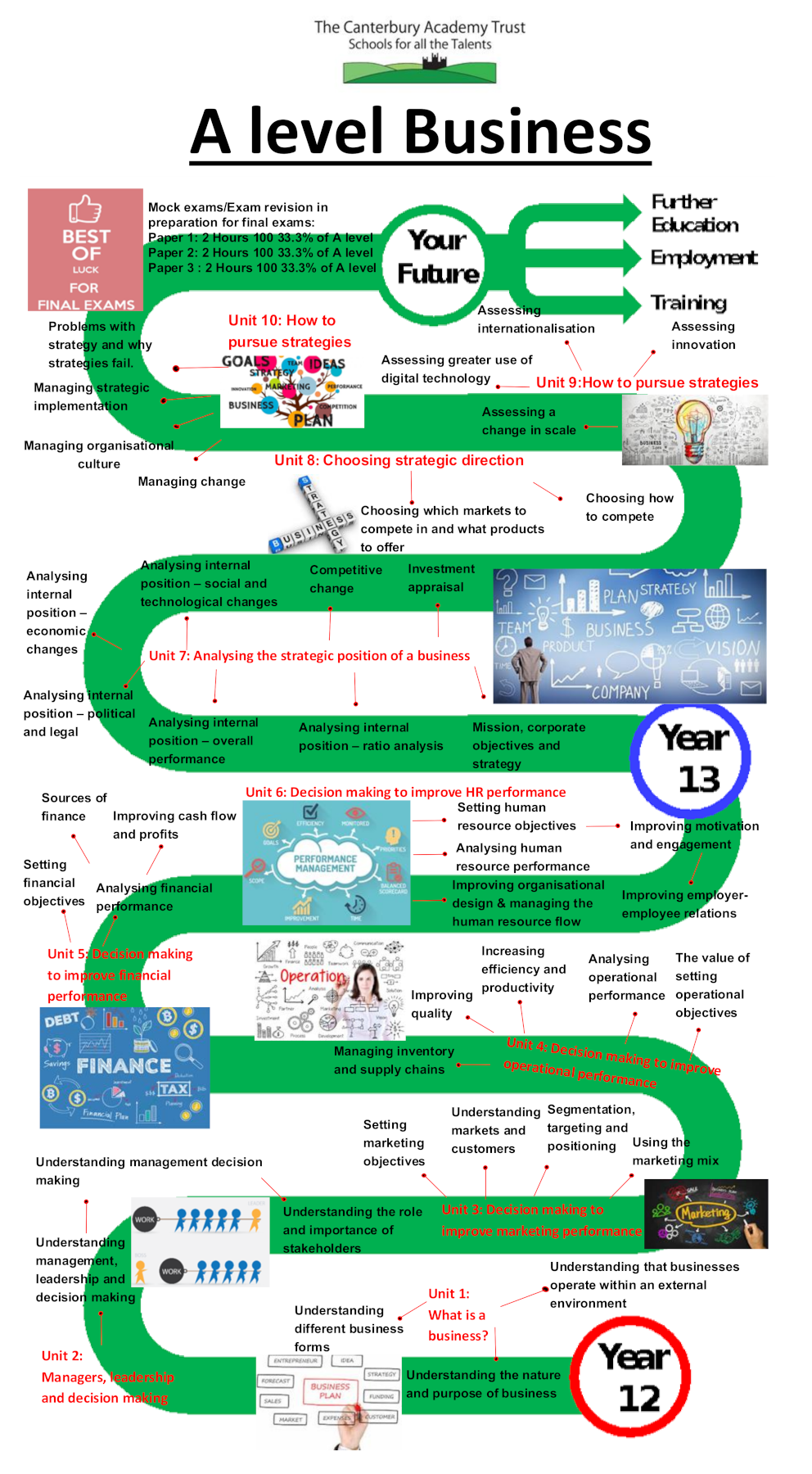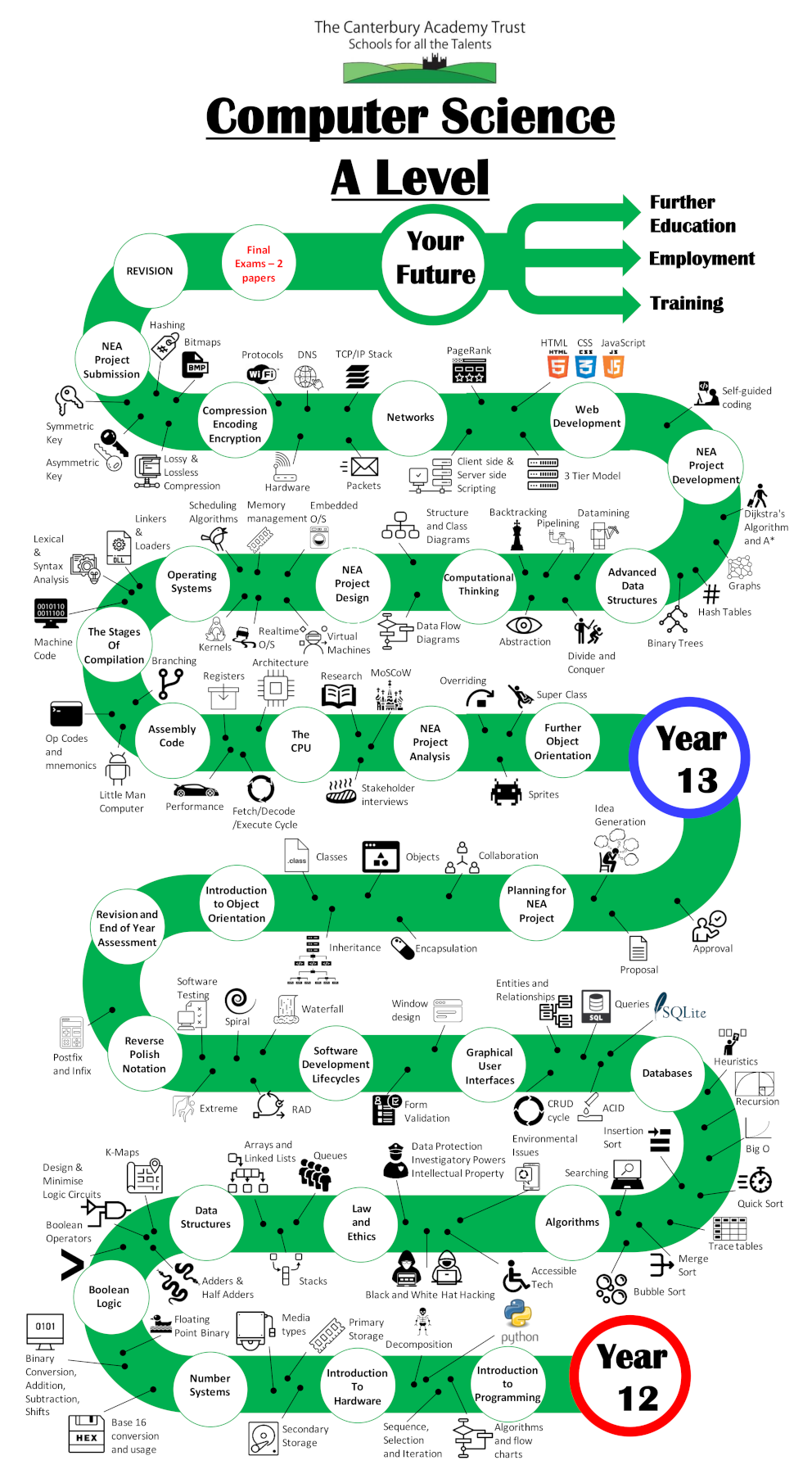Why Study Business?
We aim to develop all students’ appreciation and interest in the field of Business. We want to give them confidence, independence, and resilience to be able to progress to further education, training or employment.
We aim to make our students entrepreneurs of the future; shaping the necessary skills and embedding the commercial knowledge that will develop their business ideas, enhance their creativity, and ultimately help secure success. The spirit and pace of the workplace, the demands of day-to-day business environments, workload balance and entrepreneurship are captured and developed through the Business curriculum.
Throughout our lessons students also develop their skills to be successful employees, and this is embedded into our curriculum through classroom learning, coursework, and enrichment; for example, the discussion of employment legislation, understanding money and the drawbacks and benefits to sources of finance, marketing, and business life skills. Key commercial knowledge is assessed and developed through exams, task-based assignments, and ongoing in-class feedback that allows students to discover, apply, and demonstrate their talent and ambition within the context of a particular business.

The purpose of studying Business at The Canterbury Academy is…
- To identify their own entrepreneurial spirit.
- To provide our students with a curiosity to pursue business in KS4 and KS5. (KS3)
- To provide our students with the tools that they need to create their own business idea and have the confidence to become budding entrepreneurs. (KS4)
- To enable our students to understand how key business concepts can be broken down and applied to different business scenarios, giving our students a more in-depth understanding of how real businesses work. (KS4/5)
- To inspire excitement through investigating strong business brands. (KS4/5)
- To develop our students’ communication skills and confidence through business pitches and expressing their ideas.
- To embrace the failure and risk that is evident in business to show resilience.
- To encourage our students to explore the business world and understand the daily activities of corporate society. (KS5)
- To give students the necessary skills to enter the real world of business and flourish.
Recommended Reading
- Edexcel GCSE (9-1) Business textbook
- Edexcel GCSE (9-1) Business Complete Revision and Practice
- www.tutor2u.net
- www.bbc.co.uk
- www.londonstockexchange.com
- www.ons.gov.uk
- www.theguardian.com
- www.ft.com
See our learning journey
At KS3 students undertake a different topic each half term. Students begin by learning the key concepts required to develop their knowledge in Business Studies. As the topics develop students are also given the opportunity to further develop their analytical skills.
Topics are designed to develop the student curiosity and engagement with the subject through studying a variety of scenarios that entrepreneurs and employers find themselves in, for example, starting a business and assessing the impact of external factors. Students cover topics and themes that engages them with relevant and up-to-date business activity, which develops their commercial awareness. These topics, with some links to further study at KS4 and KS5, will allow students to appreciate the world around them and become more informed global citizens.
At KS4 students use the knowledge and skills they have learnt in KS3 to help them access the GCSE Business curriculum with confidence. This provides opportunities to extend their analysis of business situations more quickly, allowing for analysis of case studies and exploring local links that stimulate engagement and interest.
At KS5 students are exposed to further real-life examples with an emphasis on developing depth in key areas such as marketing, finance, leadership, and management. Throughout the key stages students explore topics with extended writing to develop their geographical arguments.
Why Study Computer Science and ICT?
A modern Computing curriculum aims to provide students with the communication skills, flexibility of mindset, and the fearlessness when tackling complex problems that will serve them so well in the future.
Computing is not just good for the economy, it is fun, and it gives young people huge opportunities in life. For example, visual programming languages made specifically for creating games allows children to design games in an accessible manner. Computer education enhances technological progress, which is a major determinant of the future of the economy, and can be an asset in improving students’ overall learning ability.
Computer education improves students’ research skills by encouraging them to look for information on the Internet. It enables them to research various topics by seeking relevant books that could be digitally available online. The Internet also contains search options, which expose students to diverse ways of obtaining information. Thanks to the speedy nature of the Internet, students can research their desired topics within minutes.
Incorporating computer education in schools can inspire students to undertake careers in technology and enhance their understanding of how computer technology impacts people’s daily lives. The knowledge acquired in secondary school may increase their interest in computer-related fields at university. Furthermore, computing provides students with a grounding in computer-related software and activities, such as using office productivity tools, programming languages, and creating data sheets. Students can apply these skills to a range of occupations later in life.
Computer classes allow students to put their creativity to use. For example, students may use their own creative design flair and talent to build a mobile phone app. Students can transfer their enhanced creativity to other activities in their lives, including memorising scientific facts, historical information or mathematical formulas. Computer education also reduces the time needed to efficiently learn new material.
The purpose of studying Computer Science and ICT at The Canterbury Academy is…
- To enable our students to understand and apply the key strands, principles, and concepts of the computing and digital literacy curriculum including algorithms, programming and development, data and data representation, logic, hardware and processing, communication and networks and information technology.
- To provide the opportunity for our students to study the theory that underpins computational thinking including abstraction, decomposition and debugging. Our students will then be able to apply these problem-solving strategies, not only when writing programs, but also when solving real-world issues.
- To provide our students with digital literacy and software skills to help to collate, analyse, evaluate, and apply skills and concepts learned in computer science and ICT across the curriculum in various disciplines. For example, to use the spreadsheet skills learned in ICT to summarise results of an experiment in science.
- To provide our students with sufficient knowledge to enable them to make safe and informed choices when using technology, particularly in regards to social media, security, and privacy of personal information. Our students should know how to identify and report inappropriate conduct.
- To encourage our students to be aware of the impact of technology on society as a whole in regards to ethical, legal, moral, social, political, and economic perspectives.
Recommended Reading
Computer Science Pathway:
- Where Wizards Stay Up Late – K Hafner and M Lyon
- Python for Kids 2nd Edition – J R Briggs
- Learn Python the Hard Way – Z A Shaw
- GCSE Computer Science for OCR Student Book – D Waller and A Weldman
- BBC Bite Size: https://www.bbc.co.uk/bitesize/examspecs/zmtchbk
- John Philip Jones: https://www.youtube.com/@johnphilipjones
- Runestone Academy – Foundations of Python Programming: https://runestone.academy/ns/books/published/fopp/index.html?mode=browsing
Vocational Computing Pathway:
- BTEC Tech Award 2022 Digital Information Technology Student Book – Pearson BTEC
- MrBrownCS: https://youtube.com/playlist?list=PL04uZ7242_M5C7q2Xry39ZSe3hOb3etQQ&si=NzfebHbXeD70IQc5
See our learning journey
Key Stage 3
At KS3 students undertake a different topic each half term. Students begin by learning the key digital literacy skills required to access information technology needed across a range of subjects. As the topics develop, students are also given the opportunity to further develop their computational thinking and creative skills. Topics are designed to develop the student’s curiosity and engagement with the subject through studying a variety of problem solving and creative tasks, for example, designing a website and robotics with the BBC Microbit computing device. These topics link to further study at KS4 and KS5, allowing students to choose from either a Vocational Computing or Computer Science pathway.
Key Stage 4
At KS4 students use the knowledge and skills they have learnt in KS3 to choose either the Computer Science or Applied Computing pathways with confidence. Computer Science provides opportunities for students to extend their programming skills using Python, allowing for analysis of code, and exploring how software and hardware function within computer systems. This pathway is exam-based and may appeal to students with an interest in maths and physics as well as programming. The Vocational pathway has close links to business administration; students must develop solutions that enhance user experience and produce a practical analysis of trends in business data using Office applications. Assessment takes place across both Yr 10 and Yr 11 through a combination of controlled assessment and exams.
Key Stage 5
At KS5 students may continue in either the Computer Science or Vocational Computing pathway, or both if appropriate. Computer Science continues to A Level which provides a more in-depth exploration of the theory, underpinning algorithms and data structures and will learn the Object-Oriented programming paradigm. Students must also complete a software development project of their choice to demonstrate their practical abilities. This route has allowed past students to study Computer Science, Cyber Security and Games Development degrees.
The Vocational pathway allows students to apply their computing skills to website and database development that would lead to either Business Studies or Applied Computing degrees, apprenticeships or employment.
Why Study Social Sciences?
Students have the opportunity to become independent thinkers and develop a range of knowledge and skills (including literacy, numeracy, evaluation, and application) which are valued by higher education and employers.
Sociology explores a variety of topics, ranging from crime to religion, from the family to the state, to divisions of race and social class. Furthermore, the ‘research methods in context’ unit encourages an active involvement with the research process. Sociology is exciting, interesting, and relevant to students’ lives. Students build on skills developed in the sciences and humanities which enable progression into a wide range of other subjects; for instance, the impact of feminism throughout history and the changing influence of religion and beliefs today.
As a social science, Psychology is also rich in both theory and empirical evidence, and we are keen to teach students that psychology is underpinned by the scientific method and that developing research skills is key to them becoming good psychologists. It is also an applied subject, and our aim is to enable students to understand and evaluate how psychological theory is turned into treatment and practice in the real world. Our goal is to develop psychology students who are inquisitive, reflective, and empathic in their approach to exploring two fundamental questions at the heart of psychology: what shapes human thought and behaviour? What are the real-world applications of this knowledge that can improve people’s lives?
A Level Law provides a solid foundation for those considering a career in law or related fields. It introduces key legal principles and concepts that are essential for higher education in law. Law requires you to analyse complex information, construct logical arguments, and evaluate evidence. These skills are not only valuable in legal studies but also in many other academic and professional areas.
Criminology A Level explores the reasons behind criminal behaviour, examining psychological, biological, and sociological theories. This helps you understand the complexities of why people commit crimes. You will gain a comprehensive understanding of how the criminal justice system operates, including the roles of law enforcement, the courts, and correctional institutions. This knowledge is crucial for anyone interested in a career in criminal justice. Criminology involves examining ethical issues related to crime and justice, such as the balance between individual rights and public safety. This helps develop a strong sense of ethics and social responsibility.
The purpose of studying Social Sciences at The Canterbury Academy is…
- To encourage our students to become curious about the world in which they live, the groups they belong to, and the influences which impact their lives.
- To enable our students to become analytical and question social phenomenon they are familiar with; to consider the impartiality of the media, the role of education and the social construction of criminality.
- To allow our students opportunities to explore the causes of social problems and increase their political literacy.
- To allow our students to make positive contributions to society, they will be equipped with the skills needed to find solutions to social issues and see the world with empathy.
- To encourage greater tolerance and acceptance of others, particularly those who are different from us.
- To inspire students to apply their psychological insight in a wide range of occupations once they leave education; the skills and knowledge students develop in psychology have value across many work sectors including business, health care, education, law, social care and media.
Recommended Reading
- Chavs – O. Jones
- The Great City Academy Fraud – F. Beckett
- Toxic Childhood – S. Palmer
- Opening Skinner’s Box – L. Slater
- Personal Life – C. Smart
- Race and Ethnicity in Modern Britain – D. Mason
- The Lucifer Effect – P. Zimbardo
- The Problem of Crime – M. Mcloughlin
See our learning journey
Social Sciences Roadmaps


Key Stage 3
At KS3 (Year 9) students undertake a different topic each half term to give them a comprehensive overview of the key topics in the social sciences. These include an introduction to social sciences, research methods, psychology, law, and sociology, including the sociology of work.
Key Stage 4 Sociology
The AQA GCSE Sociology course at Key Stage 4 covers various aspects of society and social behavior. Key topics include:
- The Sociological Approach: Introduction to sociology, key concepts, and theories such as Functionalism, Marxism, and Feminism.
- Social Structures, Processes, and Issues: Families, education, crime and deviance, social stratification.
- Research Methods: How sociologists conduct research, collect, and analyse data.
- Crime and Deviance: Agencies of social control, gender and crime, case studies like the Stephen Lawrence case.
Key Stage 5 Sociology
The AQA GCSE Sociology course at Key Stage 4 covers various aspects of society and social behavior. Key topics include:
- The Sociological Approach: Introduction to sociology, key concepts, and theories such as Functionalism, Marxism, and Feminism.
- Social Structures, Processes, and Issues: Families, education, crime and deviance, social stratification.
- Research Methods: How sociologists conduct research, collect, and analyse data.
- Crime and Deviance: Agencies of social control, gender and crime, case studies like the Stephen Lawrence case.
Key Stage 5 Psychology
The OCR A Level Psychology course covers a range of psychological theories and research methods. Key areas include:
- Research Methods: Designing and conducting psychological research.
- Psychological Themes through Core Studies: Classic and contemporary studies in psychology.
- Applied Psychology: Issues in mental health, criminal psychology, child psychology.
Key Stage 5 Law
The OCR A Level Law course provides an in-depth understanding of the legal system. Key topics include:
- The Legal System and Criminal Law: Structure of the legal system, principles of criminal law.
- Law Making and the Law of Tort: How laws are made, principles of tort law.
- Further Law: Specialisation in areas such as human rights law or contract law.
Key Stage 5 Criminology
The WJEC Level 3 Criminology course explores the study of criminal behavior and the criminal justice system. Key units include:
- Changing Awareness of Crime: Types of crime, reasons for unreported crime, media representation.
- Criminological Theories: Biological, individualistic, and sociological theories of criminality.
- Crime Scene to Courtroom: Roles of personnel in criminal investigations, trial processes.
- Crime and Punishment: Law making processes, organisation of the criminal justice system, effectiveness of agencies in achieving social control.
Meet the Vocation and Society Department
| Ms M Bampton | Teacher of Business, Director of Teaching and Learning – Vocation and Society |
| Mr N Bonugli | Teacher of Business – Assistant Vice Principal |
| Mrs S Osborne | Teacher of Business – Assistant Vice Principal |
| Mrs N Barton | Head of Business |
| Mr G Carr | Teacher of Business – Wellbeing Lead |
| Mr T Onions | Teacher of Business |
| Miss C Ward | Teacher of Business |
| Mr L Jacob | Head of Computer Science |
| Ms M Henry | Head of Vocational Computing |
| Mr M Hamilton | Teacher of Computing |
| Mrs I Uden | Teacher of Computing |
| Mr L Warner | Teacher of Computing |
| Mrs R Morse | Head of Social Sciences |
| Miss C Lanyero | Teacher of Social Sciences |
| Mr D Rattigan | Teacher of Social Sciences |
| Mr D Riogbert | Teacher of Social Sciences |
| Mr S Hadlow | Teacher of Travel and Tourism – Senior Vice Principal |
| Mrs E Vinn | Teacher of Travel and Tourism |
Courses offered at KS4 and KS5
Key Stage 4
- GCSE Business – Edexcel
- GCSE Computer Science – OCR
- GCSE Sociology – AQA
- BTEC Level 2 Digital Information Technology
Key Stage 5
- A Level Business – AQA
- A Level Computer Science – OCR
- A Level Sociology – AQA
- A Level Psychology – AQA
- A Level Law – AQA
- Applied A Level Criminology – WJEC
- BTEC Level 3 Business: Single, Double or Triple Award
- BTEC Level 3 Information Technology
- BTEC Level 3 Marketing
- BTEC Level 3 Travel and Tourism
- BTEC Level 3 Psychology
- NCFE Level 3 Uniformed Services



